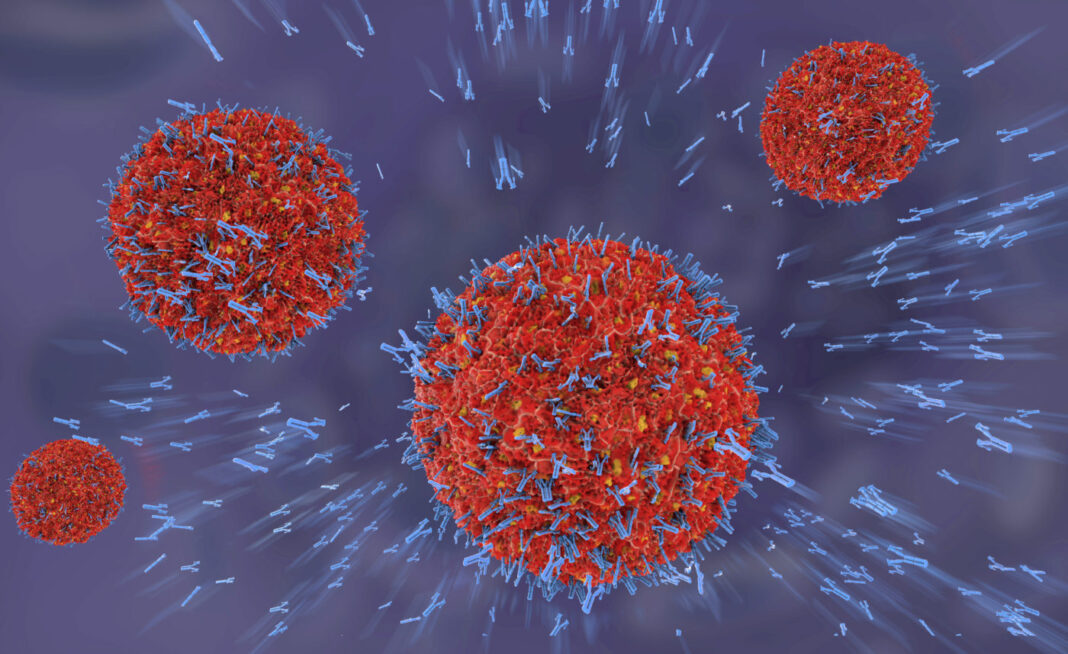Current COVID-19 tests detect the presence of the SARS-CoV-2 viral RNA genome in patients’ samples through RT-PCR. They are designed to identify who has the virus in their system, at the time of testing. But, testing in the United States has been inadequate on multiple levels. There are not enough tests, leaving some patients waiting in long lines outside of the hospital and others sleeping overnight in their cars, waiting to be tested. Also, the tests’ levels of sensitivity (identifying those with the disease correctly) and specificity (identifying those without the disease) have been called into question.
The testing situation’s deficiencies have left a looming question… how many COVID-19 cases have gone undetected? Small studies have started to color in part of this picture. For example, a recent paper in the New England Journal of Medicine reports a survey performed at the New York–Presbyterian Allen Hospital and Columbia University Irving Medical Center in NYC. The study included 215 pregnant women who were admitted for delivery. The pregnant women were screened on admission for symptoms of COVID-19 and tested for the presence of SARS-CoV-2. Four women were symptomatic and tested positive for COVID-19. Of the 211 women without symptoms—29 (13.7%) were positive for SARS-CoV-2. The take-home message of the study is that 29 of the 33 patients who were positive for SARS-CoV-2 at admission (87.9%) had no COVID-19 symptoms at presentation.
The researchers at the NIH in Bethesda, MD, have a plan to color in even more of this picture. The NIH is launching a study to determine how many adults in the United States—without a confirmed history of infection with SARS-CoV-2—have the presence of antibodies against SARS-CoV-2. The presence of antibodies in the blood will be used as an indication of a prior infection.
The study was announced on April 10, and, according to a tweet on April 11 by Kaitlyn Sadtler, PhD, study lead for laboratory testing and chief of NIBIB’s Section for Immunoengineering, the team was “getting inundated” with people who had volunteered for the study while also noting that “diversity of donors is key.”
In this “serosurvey,” researchers will collect and analyze blood samples from as many as 10,000 volunteers to provide critical data for epidemiological models. Individuals with a confirmed history of COVID-19 or current symptoms consistent with COVID-19 are not eligible to participate. The results will help illuminate the extent to which the novel coronavirus has spread undetected in the United States and provide insights into which communities and populations are most affected.
“An antibody test is looking back into the immune system’s history with a rearview mirror,” said Matthew J. Memoli, MD, director of NIAID’s Laboratory of Infectious Diseases Clinical Studies Unit and an investigator on the study. “By analyzing an individual’s blood, we can determine if that person has encountered SARS-CoV-2 previously.”
Investigators will analyze blood samples for two types of antibodies, anti-SARS-CoV-2 S protein IgG and IgM, using an ELISA (enzyme-linked immunosorbent assay) developed by researchers at NIAID and NIBIB. Sadtler gave a reason on twitter as to why they have chosen to use an ELISA over the quick test kits, noting that “reliability and ability to use a variety of controls, test, and re-test.”
In blood samples found to contain antibodies against SARS-CoV-2, researchers may perform additional tests to evaluate the volunteers’ immune responses to the virus. These data may provide insight as to why these cases were less severe than those that lead to hospitalization.
“This study will give us a clearer picture of the true magnitude of the COVID-19 pandemic in the United States by telling us how many people in different communities have been infected without knowing it because they had a very mild, undocumented illness or did not access testing while they were sick,” said Anthony S. Fauci, MD, NIAID director. “These crucial data will help us measure the impact of our public health efforts now and guide our COVID-19 response moving forward.”
Healthy volunteers over the age of 18 from anywhere in the United States can participate and will be asked to consent to enrollment over the telephone.
After enrollment, study participants will attend a virtual clinic visit, complete a health assessment questionnaire and provide basic demographic information—including race, ethnicity, sex, age, and occupation—before submitting samples in one of two ways. Participants working at the NIH Bethesda campus will have blood drawn at the NIH Clinical Center. Other volunteers will participate in at-home blood sampling. Neoteryx, a medical device firm based in Torrance, CA, will supply at-home blood collection kits. Researchers will ship each study participant a Mitra® Home Blood Collection Kit and provide detailed instructions on collecting a microsample of blood and mailing it back for future analysis in the laboratory.
“Researchers have considerable experience using these at-home blood collection kits to track the spread of other infectious diseases like influenza, and this method is safe, effective, and easy-to-use,” said Sadtler. “With a small finger-pick, volunteers can help scientists fight COVID-19 from their homes.”



